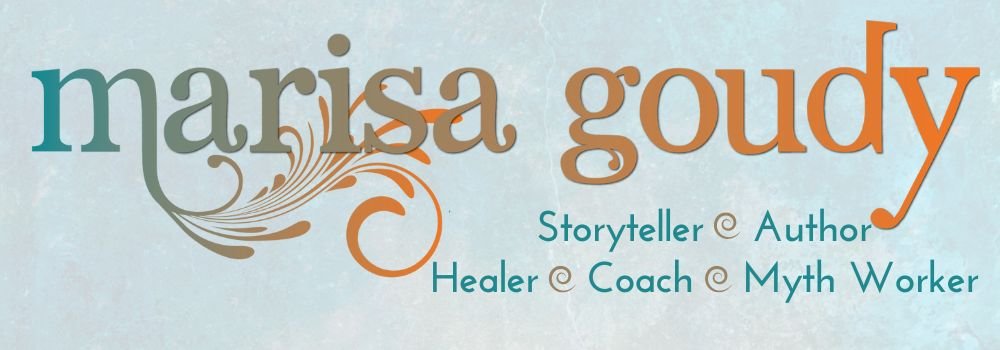When you do something seventeen times, you start to know what to expect. When your work is creative, intuitive, and interactive, you know it’s not going to be just like the last time, but you trust the rhythm.
But still, even after leading seventeen writing coaching and story healing sessions in the Sovereign Writers Circle over the last year and a half, I always get butterflies before we begin.
Our group sessions are a totally unscripted ninety minutes, but I know the nerves don’t come from lack of preparation.
By nature, I thrive on improvisation. I’ve spent years all offering healing to writers and writing for healers, so I trust I can hold the space and respond to the questions that come up. Plus, getting to spend time with my closest circle of clients is always a highlight of my week.
I feel all the feelings in my belly because I’m anticipating how I’m going to be surprised. My only fear is that we won’t stretch in a totally new direction during our hour and a half together.
But something magical and unexpected always happens. Every. Blessed. Time.
How Do Support Someone Else’s Creativity? How Do You Support Your Own?
Last week’s Sovereign Writers Circle writing coaching and story session was special from the very beginning.
We started with a question about how to support someone else’s creative process. (This isn’t necessarily shocking in a group of healers, coaches, and therapists, of course. It’s such a valuable question for all creatives to ask.)
One member’s partner was thinking about writing a book. Because this particular individual is a psychotherapist who is brilliant at framing at questions, she didn’t ask “how should I help them?”
Instead, she asked her sisters in the group: “what kind of support do you need to make your own creative intentions a reality?”
What helps you consistently show up to the page, the canvas, or the crafting table? (Yes, we’re a writing group, but this is a multi-passionate collection of transformation professionals who express their creative energy in many ways.)
Damn, that was a good question. And it was all the richer because I, the group facilitator, didn’t ask it.
Free and fresh to the idea, we explored the fragile nature of our creative lives.
As I look back, the entire conversation was about how to build resilience and commitment into the creative process. (Quick answer: consciously plan out and protect your creative time, but practice compassion when you cannot make it happen.)
When One Voice Articulates the Collective Wisdom
Another member of our circle, Dawn, was unusually quiet, but I could see she was deeply engaged and taking notes. I asked her where she was wandering as we spoke. It turns out she was outlining her own creative process of a Sovereign Writer.
And it was perfect.
As Dawn described it, she was pulling together the group’s answers to: “what do you need and want when it comes to how to support your creativity?”
This is what healer who writes and a writer who heals needs to know
It was veritable symphony of influences crafted by countless creative beings. Her own lived experience. The wisdom of the collective. A few phrases that I know I have offered from time to time in my coaching and teaching. The practical knowledge that comes from years of writing, exploring, making, and sharing.
The Sovereign Writer’s Creative Process
1) Get clear on the why of your writing
Ask yourself: “Why am I writing or doing whatever creative thing I am doing? What does it do for me?”
Here are three powerful reasons to pick up the pen
To heal
To explore who I was, who I am now, and who I hope to be
To share with a wider audience at some point
When you know what motivates and inspires your writing, you move on to the next essential question…
2) Decide what you actually want to write
Follow Dawn’s lead and ask yourself, “What form does my creativity want to take? Does it want to be a bit of poetry or a story? It might be that I am going back to the writing I started with one of our prompts from last week or starting something new. ”
I’d add that other Sovereign writers are also deciding between blog posts, website copy, and book chapters.
3) Once clear on the why and the what, set small, simple goals for yourself each week
Again, credit to the SWC’s Dawn: “I tend to overwhelm myself and nothing gets done, so I set something doable, like come back to the writing I started during our last writing practice call.”
You don’t add “write a book” to your to do list. You don’t add “create content every week” either. Instead, you set initial goals related to simply sitting down and meeting yourself on the page.
4) Plan tomorrow’s writing time the night before
“I try look at the next day and find the pockets of time I do have to write. I make a list of the creative projects I have and decide what I would like to make progress on and where I can plug those in.”
This is so important… It can be hard to stick to daily writing dates at the same time each day, especially when you’re an entrepreneur who wants to be available for client sessions. Instead, look for white space on your calendar and fill in your creative time twenty-four hours before.
And then, thought she didn’t say this in these exact words, she offered us a fifth element that’s really the most important…
5) Practice permission and forgiveness
“I’d like to be making greater progress,” Dawn said, “but what if I just write a paragraph this week and that’s good enough right now?”
If you want to write a book or blog regularly, a consistent one paragraph-a-week habit isn’t going to work for you, but if it happens now and again all you can do is forgive yourself and give yourself permission to try again next week.
And there’s one more element that came through as she credited the group for helping her come up with this list...
6) Stay connected to community
“It was through everyone’s sharing that I was able to map that out for myself. It’s so beautiful because we all created this together. It feels like we’re all at the same place together, not just with our writing, but with our creativity. How do we support ourselves and the people we love and each other in our creativity. As each one of you spoke you were like a voice inside of me…”

